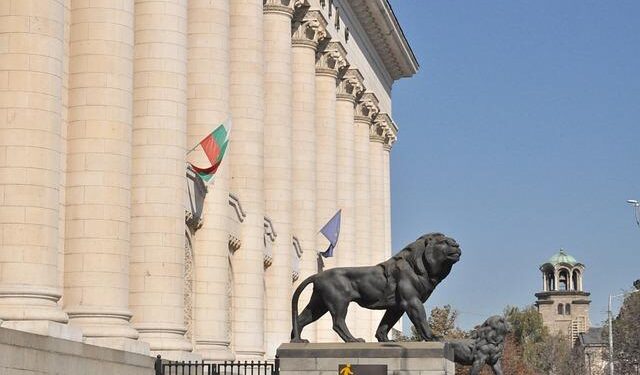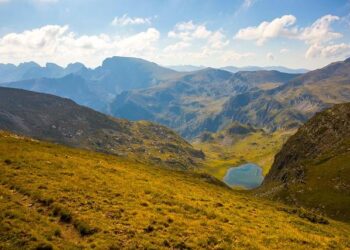Bulgaria’s tourism sector saw a notable boost in September, with revenues from tourist overnight stays rising by 15% year-on-year, according to the latest data released by SeeNews. The increase reflects growing demand and a steady recovery in the country’s hospitality industry, underscoring Bulgaria’s appeal as a travel destination amid ongoing global challenges. This upward trend highlights the sector’s critical role in the national economy and signals positive momentum heading into the final quarter of the year.
Bulgarias Tourism Sector Sees Significant Revenue Growth Driven by Increased Overnight Stays
Bulgaria’s tourism industry is experiencing a notable rebound, buoyed by a surge in overnight stays recorded last September. Data reveals a 15% year-on-year increase in revenue generated from tourists spending nights across the country’s diverse destinations. This growth signals a robust revival following the challenges faced during the global pandemic, with coastal resorts and cultural hubs leading the charge in attracting visitors from Europe and beyond.
Key factors contributing to this positive momentum include:
- Enhanced marketing campaigns targeting international tourists
- Shorter stay packages encouraging longer visits
- Improved transport infrastructure facilitating easier access to remote locations
- Competitive pricing strategies by hospitality providers
| Month | Revenue Growth (%) | Overnight Stays Increase (%) |
|---|---|---|
| July 2023 | 12 | 10 |
| August 2023 | 18 | 17 |
| September 2023 | 15 | 14 |
Key Destinations and Visitor Demographics Fueling the Revenue Surge in September
September’s revenue growth can largely be attributed to a remarkable influx of visitors to Bulgaria’s premier tourist hubs. Coastal destinations like Sunny Beach and Varna experienced a surge in overnight stays, driven by travelers from key European markets such as Germany, Russia, and the UK. Meanwhile, cultural and historical centers like Sofia and Plovdiv saw a steady rise in urban tourism, further bolstered by international business travelers and event attendees. This mix of leisure and corporate visitors has created a diversified demand base, contributing significantly to the overall revenue increase.
Demographic data reveals that the majority of overnight stays were recorded among middle-aged adults and young families, who favored extended vacations in the seaside resorts. Additionally, solo travelers and couples, particularly from neighboring Balkan countries, showed increased interest in cultural experiences and gastronomic tours. The following breakdown highlights the top contributing visitor segments and destinations:
| Visitor Segment | Key Destination | Revenue Contribution (%) |
|---|---|---|
| Middle-aged Families | Sunny Beach | 35% |
| Young Adults & Couples | Plovdiv | 25% |
| Business Travelers | Sofia | 20% |
| Balkan Regional Tourists | Veliko Tarnovo | 15% |
| Other | Various | 5% |
Strategic Recommendations for Sustaining Bulgaria’s Tourism Momentum Amid Rising Demand
To capitalize on the 15% year-over-year increase in tourist overnight revenue, Bulgaria must adopt a multi-faceted approach that balances growth with sustainability. Priority should be given to enhancing infrastructure in key destinations while promoting lesser-known regions to distribute visitor traffic more evenly. Investing in digital technologies for seamless travel experiences and personalized services will not only attract a diverse range of tourists but also increase per-visitor spending. Additionally, strategic marketing campaigns targeting emerging markets such as Asia and the Middle East could further augment Bulgaria’s appeal on the global stage.
Stakeholders should also emphasize environmental stewardship and cultural preservation to maintain Bulgaria’s unique charm. This includes enforcing strict regulations on new developments and fostering partnerships with local communities to enhance authenticity. Below is a snapshot of recommended focus areas to sustain momentum:
- Infrastructure modernization: Upgrading transport and accommodation facilities
- Regional diversification: Promoting lesser-explored destinations
- Technological innovation: Implementing smart tourism solutions
- Targeted marketing: Expanding into new international markets
- Sustainability measures: Protecting natural and cultural assets
| Area | Action | Expected Impact |
|---|---|---|
| Transport | Enhance rail and road connectivity | Improved accessibility |
| Accommodation | Develop eco-friendly hotels | Attract eco-conscious travelers |
| Marketing | Focus on digital campaigns in Asia | Increase in high-value visitors |
| Cultural Heritage | Community-led preservation projects | Enhanced visitor experience |
In Summary
The notable 15% year-on-year increase in Bulgaria’s tourist overnight revenues in September underscores the country’s growing appeal as a travel destination and reflects a sustained recovery in its tourism sector. As Bulgaria continues to invest in infrastructure and promote its diverse attractions, industry experts remain optimistic about further growth in the coming months. Stakeholders will be closely monitoring these trends to capitalize on the upward momentum in tourism-driven economic activity.
















